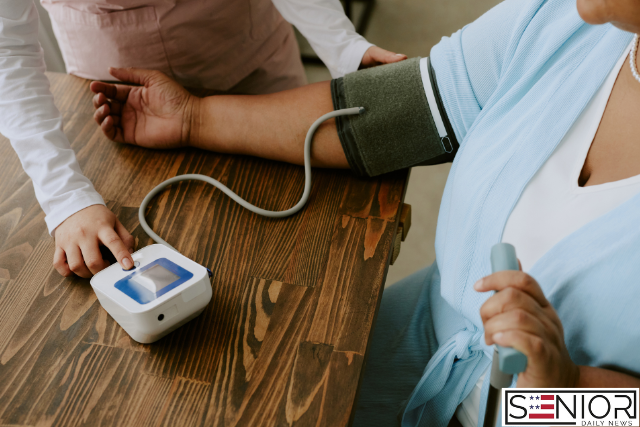Tech Devices That Help Monitor Chronic Conditions

Living with a chronic condition can be challenging, but thanks to technology, managing health at home is now more accessible than ever. Gone are the days when patients had to rely solely on regular doctor visits to monitor their health. Today, smart health devices empower people to take control of their well-being, often in real-time.
Whether you’re managing diabetes, hypertension, heart issues, or respiratory conditions, there are a variety of tech devices that help monitor chronic conditions effectively and easily. These tools are not only improving quality of life but also providing peace of mind for both patients and their loved ones.
In this article, we will explore some of the most useful tech devices available today, discuss their benefits, and offer insights on how they make chronic disease management easier and smarter.
Why Monitoring Chronic Conditions Matters
Before diving into specific devices, it’s important to understand why monitoring is so critical. Chronic conditions are typically long-lasting and often require constant management to prevent complications. Failing to track important health metrics can lead to:
- Serious health complications
- Emergency hospital visits
- Poor medication management
- Reduced quality of life
By using modern tech tools, patients can stay on top of their health, identify potential issues early, and even share real-time data with healthcare providers for more informed decisions.
Smart Devices That Are Transforming Chronic Disease Management
Smart Blood Pressure Monitors
High blood pressure, or hypertension, is one of the most common chronic conditions worldwide. Keeping it under control is vital to avoid heart disease, strokes, and other complications.
Smart blood pressure monitors allow patients to track readings at home with ease. These devices connect to smartphones and automatically record readings. Many apps offer charts and trends that help users and doctors analyze blood pressure patterns over time.
Benefits include:
- Easy daily monitoring
- Automatic data logging
- Sharing reports directly with physicians
- Reminders for daily readings
Popular options include Withings BPM Connect and Omron Evolv.
Continuous Glucose Monitors (CGMs)
For people living with diabetes, monitoring blood sugar levels is essential. Continuous glucose monitors (CGMs) offer a revolutionary alternative to traditional finger-prick tests.
These small wearable devices provide round-the-clock glucose readings. The data is sent directly to a smartphone or smartwatch, allowing users to track blood sugar trends in real time.
Benefits of CGMs:
- Real-time alerts for low or high blood sugar
- Less invasive than frequent finger pricking
- Insights into how food, exercise, and sleep affect glucose levels
Devices such as Dexcom G7 and Freestyle Libre 3 are leading the CGM revolution.
Smartwatches and Fitness Trackers
Modern smartwatches do far more than count steps. Devices like the Apple Watch, Fitbit, and Garmin models now come equipped with health monitoring features including:
- Heart rate tracking
- ECG (Electrocardiogram) functions
- Blood oxygen level monitoring
- Sleep tracking
For individuals with chronic conditions like heart disease or COPD, these functions can provide valuable daily health insights and even send alerts if irregularities are detected.
Benefits include:
- Immediate feedback on heart rate and oxygen saturation
- Activity and sleep pattern tracking
- Emergency SOS features for urgent situations
Smart Inhalers
Respiratory diseases such as asthma and COPD require careful management of medication. Smart inhalers connect to apps to remind users when to take their medication and log usage.
These devices also record data like peak flow rates and inhaler technique, which can be shared with healthcare providers for better treatment adjustments.
Benefits of smart inhalers:
- Better medication adherence
- Real-time usage tracking
- Improved asthma or COPD management
Devices such as Propeller Health and Hailie smart inhalers are popular choices.
Smart Scales
For people managing conditions like heart failure or obesity, monitoring weight trends is important. Smart scales connect to mobile apps and provide detailed data beyond simple weight, such as:
- Body fat percentage
- BMI (Body Mass Index)
- Water retention
Sudden weight gain in people with heart issues can signal fluid retention, which needs immediate medical attention.
Benefits of smart scales:
- Daily weight and body composition tracking
- Trend analysis
- Integration with other health apps
Popular smart scales include Withings Body+ and Fitbit Aria Air.
Smart Pill Dispensers
Remembering to take medication on time can be difficult, especially when managing multiple prescriptions.
Smart pill dispensers help by organizing medication doses and sending reminders when it’s time to take them. Some models even alert caregivers if a dose is missed.
Benefits of smart pill dispensers:
- Better medication compliance
- Reduced risk of missing doses
- Alerts for patients and caregivers
Devices such as MedaCube and Hero Health make medication management easier and safer.
Portable ECG Monitors
For those with irregular heartbeats or other heart conditions, portable ECG monitors are highly valuable.
These compact devices can record your heart’s electrical activity anytime and anywhere. Data can be shared instantly with your doctor.
Benefits of portable ECG monitors:
- Early detection of heart issues
- Compact and easy to use
- Immediate sharing of results with healthcare providers
Devices like KardiaMobile are popular among heart patients.
How Tech Devices Improve Lives of People with Chronic Conditions
Technology offers more than convenience. It gives people the power to actively participate in their own health care.
Benefits include:
- Early detection of symptoms or complications
- Improved communication with healthcare providers
- Enhanced adherence to treatment plans
- Peace of mind for patients and families
- Greater independence and quality of life
For many seniors and those with chronic illnesses, these devices offer freedom and control that was once impossible.
Things to Consider Before Choosing a Health Monitoring Device
Not all devices are suitable for every user. When selecting tech for chronic condition management, consider:
- Compatibility with your smartphone or computer
- Ease of use, especially for seniors
- Accuracy and reliability
- Data privacy and sharing options
- Customer support and product reviews
Discussing options with your healthcare provider can also help you choose the right device for your specific needs.
FAQs About Tech Devices for Chronic Conditions
Q1: Are health monitoring devices accurate?
Yes, most modern devices are highly accurate but should not replace regular medical checkups. Always consult your healthcare provider regarding your readings.
Q2: Can seniors easily use these devices?
Many devices today are designed to be senior-friendly with large screens, easy buttons, and voice commands. Family members or caregivers can also assist with setup and usage.
Q3: Do I need a smartphone to use these devices?
Most smart devices do connect to smartphones for data tracking and alerts. However, some offer standalone functionality or sync with computers and tablets.
Q4: Are these devices covered by insurance?
Some devices, like CGMs and smart inhalers, may be covered partially or fully by insurance. It’s best to check with your healthcare provider and insurance company.
Q5: Can these devices replace visits to the doctor?
No. These devices are meant to complement, not replace, regular medical visits. They provide useful data that can help doctors adjust your care plan.
Image Designed Using Canva






